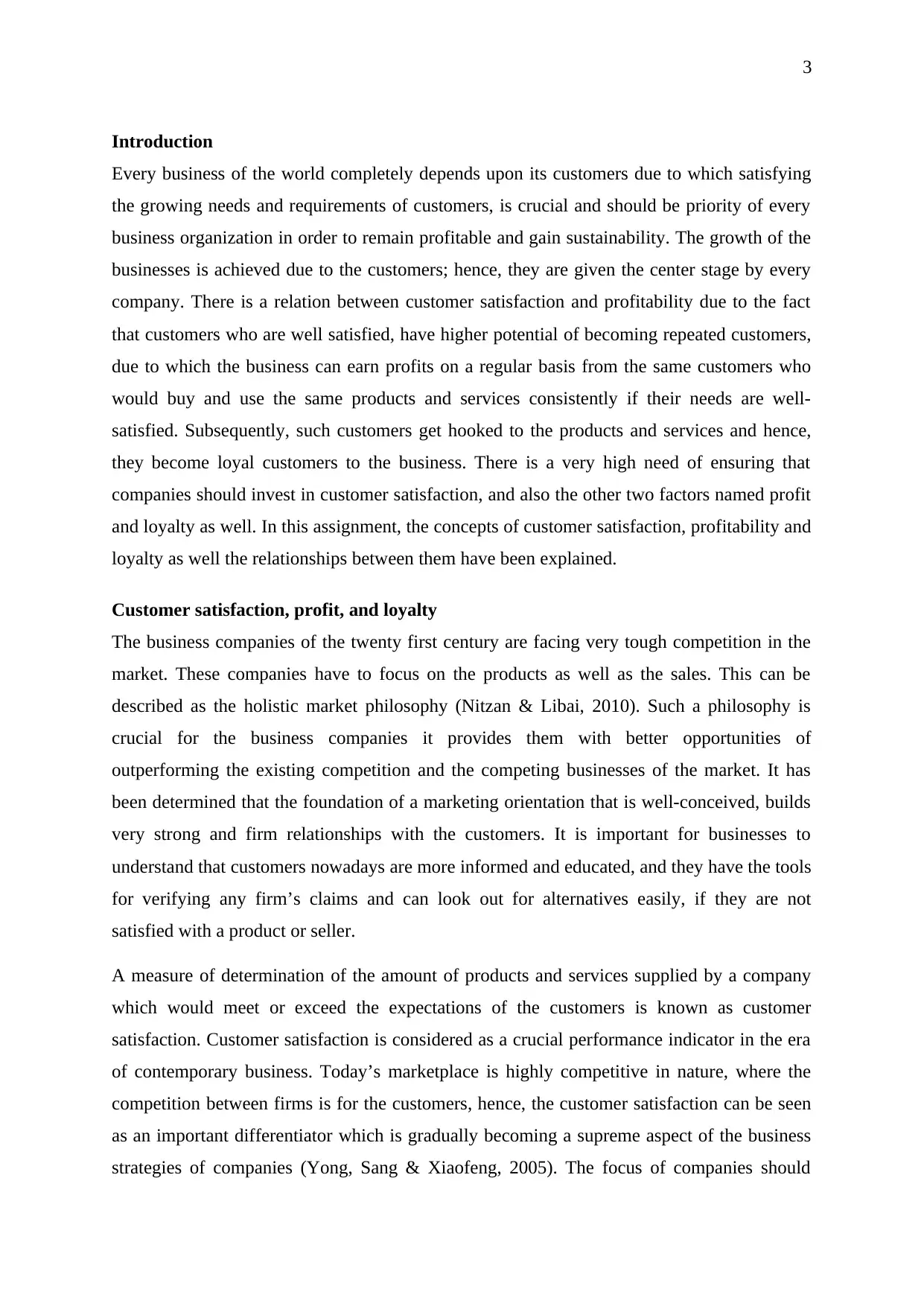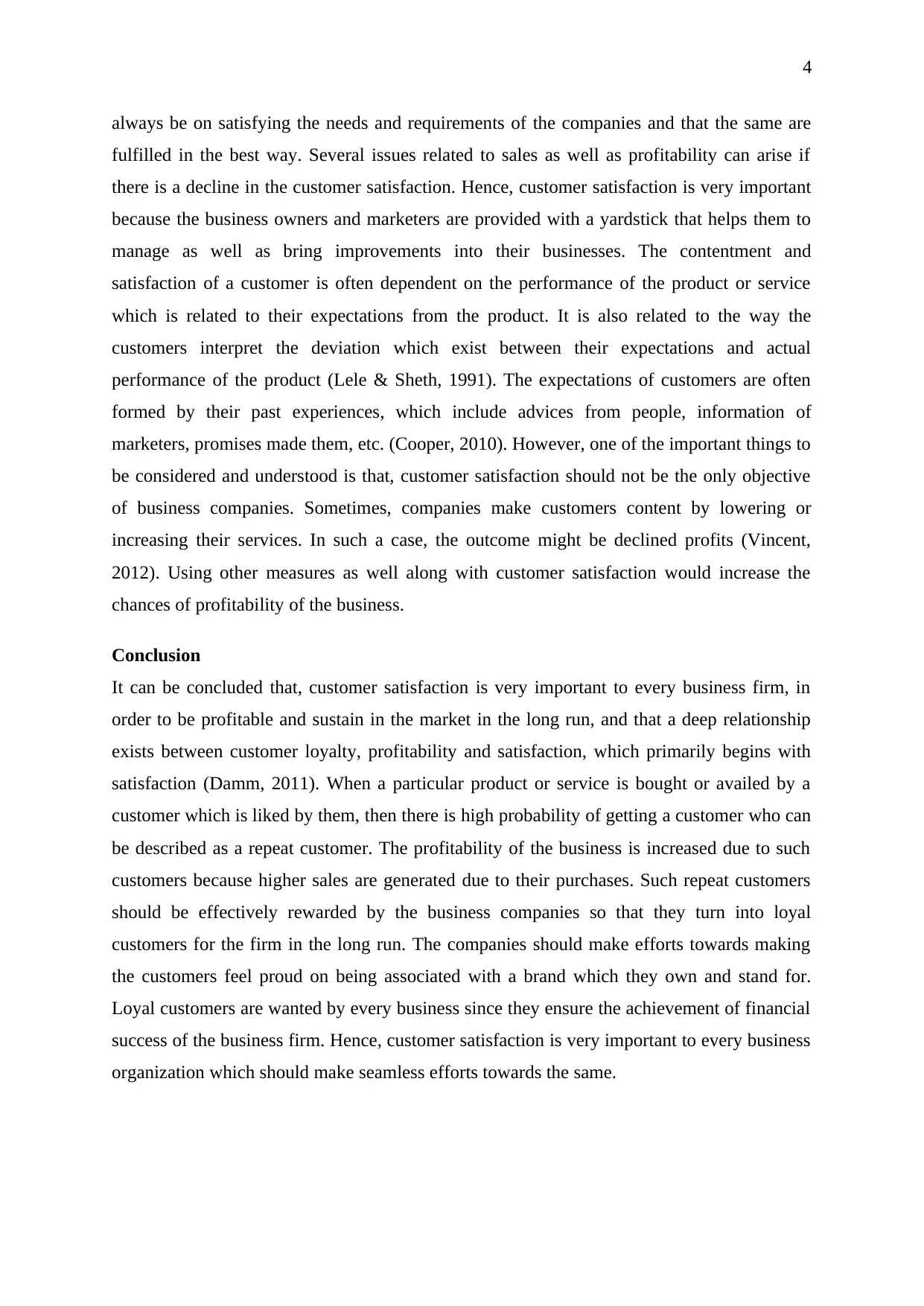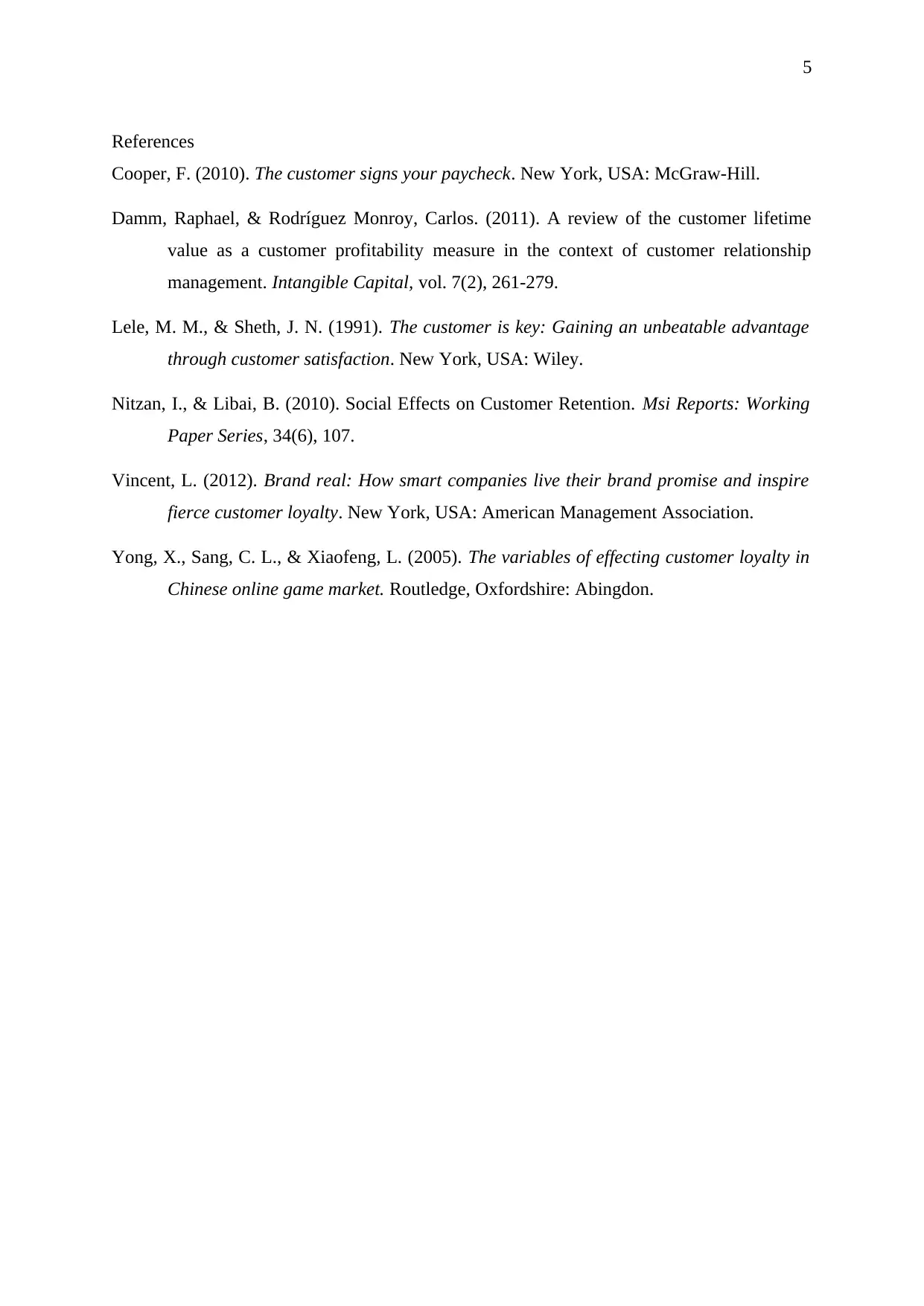Quantitative Methods: Customer Satisfaction, Profit, Loyalty Analysis
VerifiedAdded on 2023/05/30
|5
|1141
|437
Report
AI Summary
This report delves into the critical role of customer satisfaction in modern business, highlighting its direct impact on profitability and customer loyalty. It emphasizes the importance of meeting and exceeding customer expectations as a key differentiator in a competitive marketplace. The report explores the interconnectedness of customer satisfaction, profit generation through repeat business, and the development of loyal customer bases. It also discusses the need for businesses to prioritize investments in customer satisfaction to ensure long-term sustainability and financial success. The report references key concepts such as the holistic market philosophy, the importance of informed customers, and the role of customer expectations in shaping satisfaction levels. Furthermore, it underscores the significance of customer satisfaction as a performance indicator and its impact on business strategies. The conclusion reinforces the significance of customer satisfaction as a cornerstone for long-term success and emphasizes the need for businesses to actively cultivate customer loyalty.
1 out of 5





